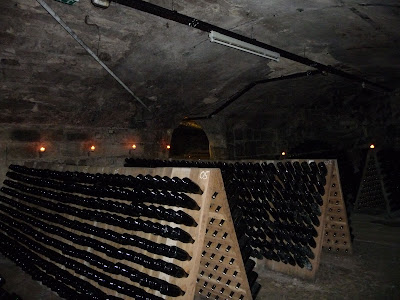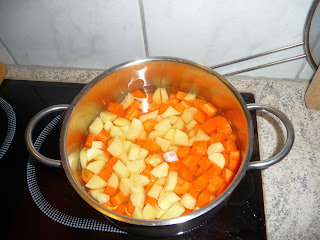Just this morning, I finished my last book for 2011, and I can't believe there weren't more than 30 - there used to be a time when I did a lot more reading, but back then, I was less involved in other activities, and my day, just like yours, still has only 24 hours, some of which (and those are not wasted) I spend asleep.
"Belle Ruin" (the original title) by Martha Grimes is the 3rd in a series of - so far - four books featuring Emma Graham, who is introduced on the author's website with this brief summary of the first book, "Hotel Paradise":
A once-fashionable now fading resort hotel. A spinster aunt living in the attic. Dirt roads that lead to dead ends. A house full of secrets and old, dusty furnishings, uninhabited for almost half a century. A twelve-year-old girl with a passion for double-chocolate ice-cream sodas, and decaying lake-fronts, and an obsession with the death by drowning of another young girl, forty years before.Hotel Paradise is a delicate yet excruciating view of the pettiness and cruelty of small town America. It is a look at the difficult decisions a young girl must make on her way to becoming an adult and the choices she must make between right and wrong, between love and truth, between life and death.
The first book was published in 1996, and I read it some time later. The second one came out in 2000, and I am pretty sure I've read that one, too. And now the third one, published in 2005. Although publication of the first three parts of this series spans almost an entire decade, time does not move ahead that much for Emma Graham. She is still 12 years old in the third book, as she was in the first. She still does not seem to have to go to school (school is mentioned, as far as I remember, only once in a half-sentence), and she still makes the salads and serves tables at the hotel where her mother is cook.
Emma is, in many ways, a convincing character as a 12-year-old. There are people she likes, and people she fantasizes about being blown to bits. She never really describes herself, and while we hear a lot about other people's clothes, we do not know what Emma looks like, except for her hair being held back from her face by four small barrettes. She is still very much a kid in that she does not think she should use make-up or dress to impress, and although she knows an attractive man when she sees one, she is not interested in boys yet; in fact, she muses about turning thirteen and what it will mean to grow up, and rather dreads the thought. There are things in her life she simply accepts with the readiness of a child not questioning what has always been like that, for instance the alcoholism of Mrs. Davidow, who co-owns (? I am not entirely sure about that) the hotel.
Although Emma has solved two crimes in the past (one of which nearly resulted in her own murder), there is still more, there are still many unanswered questions, and the girl is determined to find those answers. She knows she can not rely on anyone else but herself, because her current "case", the kidnapping of a baby more than 20 years ago, has long been closed and nobody really understands her obsession with it, or with the ruin of the once glamorous hotel where it all happened.
Expectations for the reader do build up, but I'm afraid to say we are nowhere nearer the solution at the end of the book than we are on the first page.
The fourth in the series came out last February, and I've read a brief summary which leads me to believe that it still does not contain the answer(s).
Nonetheless, I like Martha Grimes' writing, and although I do not always see eye-to-eye with her characters (which is clearly not intended to happen anyway), I enjoyed this book. If I had the opportunity to talk to the author, I'd have many questions. None of them would be about the actual plot, but more of a general nature, such as, why does Emma not go to school? What are the Heather Gay Struther dresses mentioned so often in the book? (I googled Heather Gay Struther and came up with nothing except for someone else here on blogger who posted a review of one of the Emma Graham books.) What year is the series actually set in? Sometimes there is, at least to me, a definite 1960s-feel to the whole atmosphere, but we are never really told.
Something I very much like about this book is the role food plays in it. Emma's mother is, as I said, cook at the hotel where the family live and work. What she does in the kitchen features a lot, and Emma herself loves food and the excellent cooking of her mother's. She also pays many a visit to the Rainbow Café and some other places where she eats donuts and chocolate sodas, or chilli, talking to her adult friends - there is nobody her age she really spends any significant time with.
Here is an example of one such delightful descriptions of the food served at the hotel, in this case, for a cocktail party:
slices of ham, spread with a mixture of mango, pecan and cream cheese and rolled up, as well as little sausages, served with a rum-orange-dip.
Sometimes while I was reading about all that food, I had to interrupt and go to the kitchen and get myself something to eat.
It is difficult to really recommend this book. Someone who has not read the first two will hardly know what Emma is talking about for at least half of the time. Someone who expects a solution to the unsolved crime(s) will be disappointed. Someone who likes reading from a different perspective, and, like myself, has a penchant for neglected and run-down places, might like it.

















































